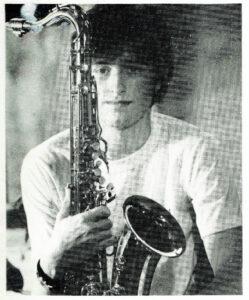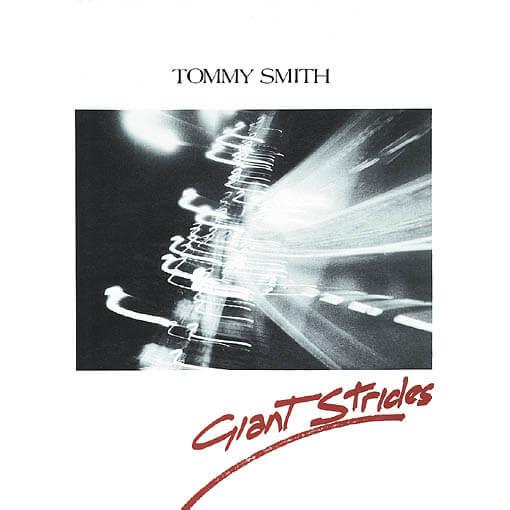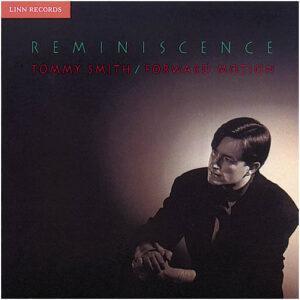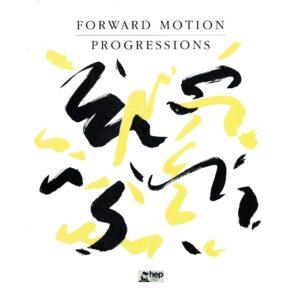More Information
- Stephanie (Tommy Smith) 5:52
- Sidewalk (Alan Taylor) 3:24
- Nancy (Alan Taylor) 5:41
- Hesitation (Wynton Marsalis) 5:28
- Carolina In The Morning (Gus Kahn, Walter Donaldson) 7:10
- Giant Steps (John Coltrane) / Titan Strides (Ike Isaacs) 12:42

Produced by ELLIOT MEADOW
Recording Engineer: KENNY MacDONALD
Mastered at EMI Studios, Abbey Road, London – . by NICK WEBB
Design & Photography: JIM WAUGH
Talent has no age. The drummer Buddy Rich was pacing the vaudeville boards at the age of eleven, already a seasoned performer. Louis Armstrong was remarkably young when he made his first impression on his New Orleans peers. The history of jazz is liberally sprinkled with prodigies. It would seem, then, that youth is irrelevant. The age of any performer has little bearing on his music and should be set aside when the listener assesses his work.
Nevertheless, it is remarkable that Tommy Smith was only sixteen years old when these tracks were recorded. It is remarkable because naturally, environment, opportunity and conditioning have meant that most jazz prodigies are American. Tommy is Scottish. So, what is the listener to make of the youthful prodigy? For my part, I would turn around the old cynical remark and say that it is not remarkable that it is done but that it is done so well. Tommy, in just three years of playing, has broken through all those barriers which so hinder the progress of other young players. He clearly has his heroes: echoes of John Coltrane (who died just three months after Tommy was born) sound through many of the tracks here. Yet Tommy has not been overawed by the great figures, neither does he resort to the twin devils of youth: too many notes at too fast a tempo. He has achieved a relaxed, measured approach to his improvisation, which few mature players have and many struggle throughout their lives to achieve.
Tommy began his musical education at the age of nine ( already late by the standards of Western establishment music). At school, he played recorder and trumpet but admits that he preferred art to music. So did Edward Kennedy Ellington. Tommy took up the tenor because he liked the shape. From his progress over the last four years since making that choice, I would hazard that Tommy Smith is as natural a player of the tenor sax as was Louis of the cornet.
That huge claim is substantiated in this, his first album, Tommy’s tone, the basis of all progress on any instrument, is already that of a man many years his senior. In the ballad version of ”Carolina in the Morning,” that tone is warm, round and intimate – a close friend whispering of happy memories. In
”Stephanie” it is harder, almost swaggering. It may yet fall short of the majesty of Coltrane, but it is almost as compelling. Comparisons, in the old cliche, are certainly odious, but I am continually reminded of another great British saxophonist when I listen to Tommy, and if Tubby Hayes was still with us, I bet they would make great tenor battles!
Looking to the other end of the age scale, we find Armstrong fighting back to play at the age of seventy, the great Benny Waters cheerfully setting off for yet “‘ another round of one-night stands at over sixty.
Art Blakey and Buddy Rich prove that energetic drumming is the best recipe for longevity, while the greatest of all, Eubie Blake, was playing his own delightful piano jazz until a week before his hundredth birthday.
On that reckoning, we can look forward to another eighty·years of excellent music from Tommy Smith. Just think how you can boast in 2063 that you still have a copy of Tommy Smith’s first album.
JIM WAUGH




